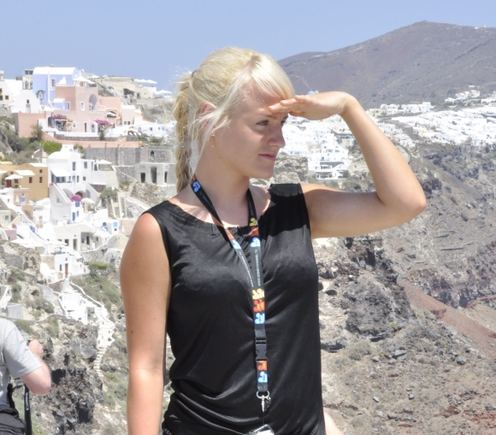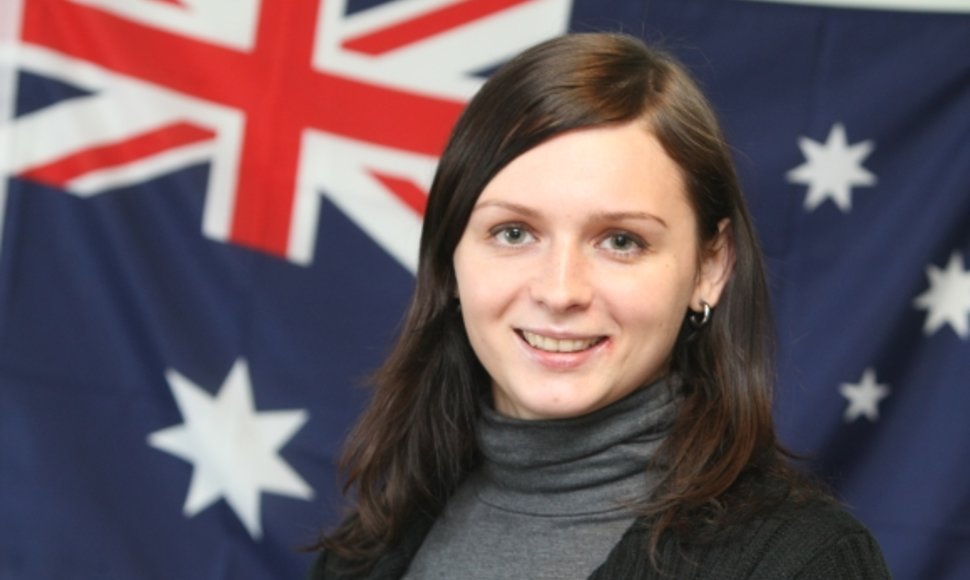Australia's economic stability and strong US dollar encourage Lithuanians to hope that they can earn a decent living, establish themselves in the faraway land and live comfortably – even if they have to start from scratch.
Land of dreams
Very few Lithuanian agencies offer trips to Australia. Svetlana Iljina, deputy director of “Ismira group” employment agency, says she has sent almost a hundred of her compatriots to Australia. This year, interest in studying or working in Australia has increased even more.
“Australia has been one of the least recession-hit countries: economic growth slowed a little but didn't stop. It is still fairly easy to find a job there – unemployment is one of the lowest in the world. Studying can be pricey, but education is of high quality and internationally recognized. The climate is wonderful, with nature delightfully exotic,” Iljina lists reasons for Lithuanians finding Australia increasingly attractive.
Arguments are often quite unnecessary. Some clients of the agency can't wait to go to their dreamland, ready to give up everything they have here.
“I remember one couple who were living quite decently in Lithuania, but they longed for new challenges. There are people who have lost their businesses during the crisis and are planning to start anew in Australia, which has a more business-friendly legal base,” says Iljina.
Nothing to lose
Reasons for leaving are numerous. For instance, Aleksandra Gurinovich, a 24-year-old from Vilnius, gave up her job in a bank in order to go to study in Australia, convinced she has nothing to lose.
 |
| Asmenininio archyvo nuotr./Aleksandra Gurinovich quit her job in a bank. |
“At first, I will brush up my English at a college – I'll be taking a six-week intensive language course. After that, I'll start my studies in marketing,” Gurinovich gladly shares her plans.
She is planning to work while doing the two-and-a-half year program. Students in Asutralia are allowed to work up to 20 hours a week – which is perfectly sufficient to support oneself.
And yet – why Australia? “First of all, it has stable economy. As far as I know, finding a job is not difficult. But I'm not going there to make a fortune and stay for good. I want to travel while I am still young, have no family or financial obligations. I would like to broaden my horizons – New Zealand and Thailand are just hours away. If nothing else, I'll come back here and get my bank job back. It is not a death sentence,” she says. Besides her job, Aleksandra had to interrupt her studies in Mykolas Romeris University.
She has already spent around 20 thousand litas (5.8 thousand euros) on her new life. That includes one semester tuition fee, health insurance, flight, and several months' rent. One year at the college will cost Aleksandra around 14 thousand litas (4 thousand euros).
Hoping to stay
Two more people are leaving for Australia in a matter of days – Alina Veismanė, 41, and her husband Arvydas Veismanis, 45.
“We're hoping to establish ourselves there and stay for good,” claims Veismanė. The couple can see no future in Lithuania.
“We used to have our own businesses. Besides that, we were socially active citizens, did a lot of volunteering. Unfortunately, one day we realized that, despite all the effort, the motherland squeezes too much out of us. As much as you try, you can never be sure about the future. Sure, we will have to start from scratch in Australia, but here, too, every day brings new surprises: new regulations, laws, taxes, etc. You toil for twenty years and suddenly you can find yourself in the same starting position again,” Alina does not try to hide her disappointment.
She is a certified economist, specializing in management and finance. In her hometown, Klaipėda, she had a consulting business. Her husband sold custom-made furniture in Vilnius.
The two met several years ago and decided to get married – for pragmatic reasons, so that the trip is cheaper. They are going to Australia on Alina's student visa. “Initially we're planning to stay for 24 weeks. I will be studying English while my husband will try to establish himself through work – he is very handy,” says Veismanė.
Not attracted by Europe
The family sold all their property in Lithuania and decided to attempt a fresh start in a new country. “Children have grown, so we can live for our own benefit – not for the state or someone else. I do not wish to sacrifice myself to anyone. I want an environment where you do not feel like you're being crushed on a daily basis. In our country, health care is practically inaccessible and entire earnings go for paying taxes. The cost of living to income ratio is impossible. You spend the bulk of our salary on services provided by monopolists, the state: electricity, water, heating, fuel,” says Veismanė.
The couple started considering going to Australia last October. Over the intervening months, they studied Australia's legal system, labour market, cost of living, wellfare.
“We could have left to Western Europe three or five years ago. My son has been living in London for four years now. But we are not attracted by Europe. And Australia can offer things that probably won't be available in Lithuania for another fifty years. When people ask if we are afraid, we reply: We're more afraid of staying here.”
Only disillusionment
According to Veismanė, an apartment in Australia costs an equivalent of 5 to 8 years' average salary. “They value human labour there. If you're a student and work 20 hours a week, three-week salary is enough to pay for the basic board and lodging. That means, one week worth of pay is left for traveling and entertainment. While in Lithuania, you work 40 hours a week and still can't afford any savings. I was also looking into possibilities of setting up a business: there, if you have certified qualifications, you don't need any additional license to do business. Australia also has laws for personal as well as corporate bankruptcy. They have a working rule of law – no one is more equal than the others or more privileged,” the would-be emigrée is convinced.
She was one of the people who went to the TV tower and the Parliament in 1991, to defend it from Soviet tanks sent from Moscow in order to crush Lithuania's will for her newly-declared independence. The rush of emotions and patriotic feeling wore off since then and is no longer enough to keep her in Lithuania.
“I'm very disappointed with my motherland. I feel sorry for the retired – I do not want to find myself in their position one day. We still have 25-30 active years ahead and I hope it will suffice for a dignified retirement.”
Sydney – the most attractive destination
Iljina, deputy director of an employment agency, also assures us that Australia offers better living with less effort. However, she points out that Australians do not look favourably at idle foreigners or give away social benefits easily.
Australian authorities have a quota of professionals they are willing to admit and the list is updated each July. “They are very particular about the professions they want. For instance, they might need musicians – namely, violinists and wouldn't allow saxophonists. However, there's always a need for qualified IT professionals, engineers, physicians, good oilmen. Lithuanians often choose to study accounting; childcare specialists are also in demand, as are those with qualifications in tourism, marketing, management, sports,” Iljina says.
Lithuanians emigrating to Australia usually go to Sydney. It has many competing colleges, therefore tuition is more affordable than elsewhere. In addition to that, Sydney boasts a well-developed tourism industry that offers many service-sector jobs.
Most Lithuanians go to Australia on student visas. “Although I have had several clients going on tourist visas that allow them to remain in the country for up to three months. These were mostly businessmen. They went on an exploratory trip, made some deals with partners, came back to Lithuania, purchased student visas for their wives and moved to Australia,” Iljina explains a possible scenario.
Will not last
Povilas Gylys, economist, comments:
“Europeans, especially the youth, turn to Australia because it was less affected by the recession. Many Irishmen go to Australia, since there is no language barrier for them. Finding a job is relatively easy, but I think, it is only a matter of time before that changes. You can't create hundreds of thousands new jobs just like that – there might be a backlash. Manual labourers will be the first ones to sense it, while qualified professionals will always be in high demand. If our “brain” is mostly drained to England, it is likely that they will come back one day. If they go to Australia, it's much less likely, because it is so far away, keeping in touch is more difficult, visiting is expensive.”
In 2009, 39 Lithuanians declared their departure to Australia. In 2010, there were 104, in 2011 – 122.
 |
| „Scanpix“ nuotr./Sidney is the new capital of promise |













